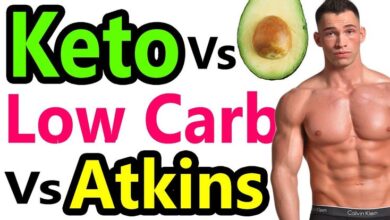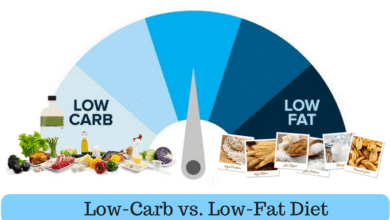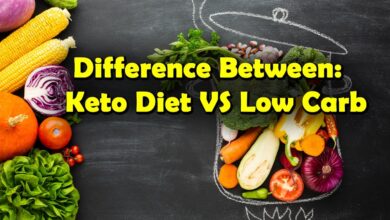
Endurance athletes are always chasing an edge—whether it’s a lighter bike, smarter training plan, or a nutrition strategy that pushes them beyond the limits. One of the hottest debates in sports nutrition today is whether keto endurance—a low-carb, high-fat approach—can become the secret weapon for cyclists and triathletes.
Instead of relying heavily on carbs, keto encourages the body to burn fat for energy, a process known as ketosis. Since fat reserves are far larger than glycogen stores, the theory is that keto can fuel long training sessions and races without constant carb-loading. But does it really work? And more importantly, is it safe?
In this article, we’ll break down everything you need to know about keto endurance, from its science-backed benefits to its drawbacks, and how cyclists and triathletes can actually implement it.
What Is Keto Endurance?
Keto endurance refers to applying the ketogenic diet to endurance sports. Instead of consuming high amounts of carbs, athletes shift their macronutrient intake toward 70–75% fat, 20–25% protein, and 5–10% carbs. The body adapts by producing ketones, which serve as an alternative energy source for the brain and muscles.
Read Also Keto Endurance Athletes: Proven Meal Plans for Long-Distance Success
Why Cyclists and Triathletes Are Turning to Keto
Cyclists and triathletes need sustained energy. Traditional fueling strategies often involve gels, sports drinks, and carb-heavy meals. While effective, these can cause energy crashes, digestive issues, and dependency on constant refueling. Keto offers an alternative: tap into nearly unlimited fat reserves.
The Science Behind Fat Adaptation
Fat adaptation is the process of training the body to burn fat efficiently. Once adapted, athletes can rely less on glucose spikes and more on steady, long-lasting fat energy, which may reduce “bonking” during races.
Carbs vs. Fats: Which Is the Real Fuel for Endurance?
| Fuel Type | Storage Capacity | Energy Yield | Limitation |
|---|---|---|---|
| Carbohydrates | ~2,000 kcal glycogen | Quick bursts of energy | Depletes in 2–3 hours |
| Fats | 40,000+ kcal reserves | Slow, steady burn | Requires adaptation |
Carbs are a sprint fuel; fats are a marathon fuel. The debate centers around which is best during mixed-intensity events like triathlons.
Metabolic Flexibility and Performance
The holy grail is metabolic flexibility—the ability to switch seamlessly between carbs and fat. Keto may enhance this flexibility, but athletes often need a hybrid strategy for peak results.
Benefits of Keto for Cyclists
- Extended endurance without constant fueling
- Reduced inflammation from processed carbs
- Better body composition for climbing efficiency
- Improved blood sugar stability
Benefits of Keto for Triathletes
Triathletes face multi-sport energy demands. Keto may:
- Delay fatigue in long swim-bike-run events
- Reduce gastrointestinal distress during marathons
- Support recovery through anti-inflammatory effects
Potential Risks and Downsides
- Early adaptation fatigue (“keto flu”)
- Reduced high-intensity performance (sprints, climbs)
- Electrolyte imbalances if not managed
- Social and lifestyle restrictions
The Adaptation Phase: What to Expect
Most athletes need 4–8 weeks to adapt. Symptoms may include brain fog, fatigue, and performance dips. Proper hydration and electrolytes can ease the transition.
Sample Keto Meal Plan for Endurance Athletes
- Breakfast: Scrambled eggs with avocado and spinach
- Lunch: Grilled salmon with olive oil and leafy greens
- Snack: Almond butter with celery sticks
- Dinner: Grass-fed beef with roasted vegetables and coconut oil
- Pre-ride fuel: MCT oil coffee
Supplements That Support Keto Endurance
- Electrolytes (sodium, potassium, magnesium)
- Exogenous ketones for quick adaptation
- MCT oil for rapid fat energy
- Collagen peptides for joint recovery
Case Studies: Pro Athletes Who Tried Keto
Some endurance pros, like Zach Bitter (ultra-marathoner), thrive on low-carb fueling. Others find performance dips too steep. This highlights the individualized nature of keto How to Transition Without Losing Performance
- Start keto during the off-season
- Reduce training intensity for the first month
- Use carb “reloads” before big events
- Work with a sports nutritionist
Common Myths About Keto and Endurance
- “You’ll lose all strength” → Not true after adaptation.
- “Keto is only for weight loss” → It’s also a performance strategy.
- “You can’t build muscle on keto” → Adequate protein makes it possible.
Expert Opinions and Research Findings
Peer-reviewed studies show mixed results. Some confirm enhanced fat oxidation, while others warn of reduced high-intensity output. The consensus? Keto may work best for ultra-distance events.
Practical Tips: Mixing Keto with Carb Cycling
Athletes can combine keto with targeted carb intake before races or intense training. This hybrid strategy provides the best of both worlds.
Recovery and Hydration on a Keto Diet
Without carbs, recovery depends more on:
- Protein for muscle repair
- Healthy fats for hormone balance
- Electrolytes for hydration stability
Long-Term Sustainability: Can You Stay Keto Forever?
Some thrive long-term, but others struggle socially and metabolically. Many athletes adopt a cyclical keto approach for sustainability.
Should You Try Keto Endurance?
If you’re a cyclist or triathlete seeking better fat-burning efficiency, stable energy, and reduced gut issues, keto might be worth testing. But approach cautiously, and personalize your strategy.
Conclusion:
Keto endurance isn’t a magic bullet—it’s a tool. For long-distance athletes, it may unlock steady energy and reduce carb dependence. But it requires discipline, patience, and customization. The real “secret weapon” lies in listening to your body and finding the balance between fat and carb fueling.
FAQs
1. Is keto endurance safe for beginners?
Yes, but beginners should transition slowly and work with a nutrition coach to avoid energy crashes.
2. Will I lose sprint power on keto?
Possibly. High-intensity efforts rely heavily on carbs, so performance may dip unless you use carb cycling.
3. Can I race Ironman events on keto alone?
Yes, but many athletes combine keto with strategic carb fueling to maintain peak performance.
4. Do I need supplements on keto endurance?
Electrolytes and MCT oil are highly recommended to prevent fatigue and maintain hydration.
5. How long before I see results?
Most athletes need 4–8 weeks for adaptation. Expect initial dips before performance improves.





One Comment